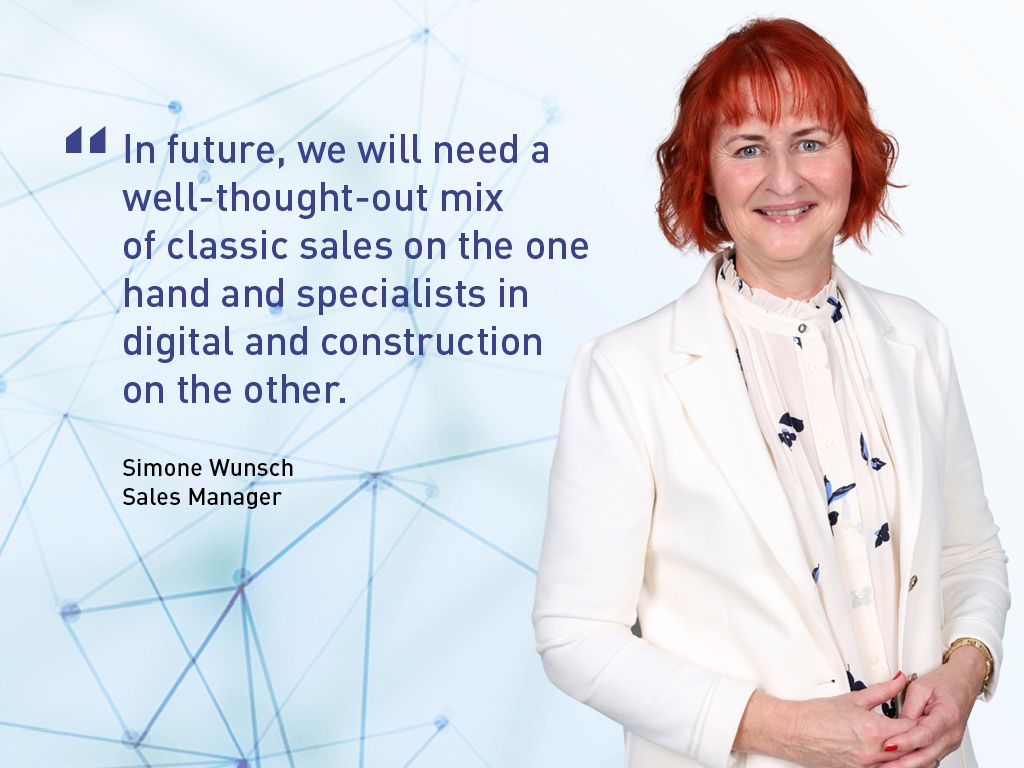To what extent do you still feel the effects of digitization in your collaboration?
Digitization has really taken off at Xella in recent years – partly due to the pandemic, of course. For customers, this brings many advantages: It is now a matter of course to simply boot up the computer and call in the specialist from our ranks via teams if we have further questions. This saves a lot of time and energy on the road. I remember earlier projects in which I came to Duisburg for a two-hour appointment – that's more than 500 kilometers from my hometown in Thuringia. That would be unimaginable today.
So will sales in the future be one hundred percent digital?
I think a good mix is for the future, because meeting customers physically creates a completely different basis. Our demonstration masters must go to the construction sites, and training courses for skilled workers will also continue to take place on site. In the construction industry, therefore, presence will always be necessary to a certain extent. My conviction is that if we were to rely solely on digital connections, a bit of humanity would fall by the wayside. And our sales tick through people.
Our customers buy from Xella because we meet them in person, because we are reliable, and because we offer good service. That all goes some way online. But we also need a bit of presence.
How will sales develop in the future?
That's a very exciting question. I believe that in the future we will need a well-thought-out mix of classic sales or even inside sales on the one hand and specialists / experts in the digital and construction industry on the other. Due to the advancing digitalization in construction, we also must rethink.
In the construction industry, for example, the shortage of skilled workers means that we are building on a larger scale, because I need fewer people on the construction sites, and because new technical equipment and tools are being used and will be used in the future. Naturally, I need specialists in my own ranks who have mastered topics such as these and can advise customers from A to Z.
Which skills are becoming more important?
It's more the technical training in construction. We already have civil engineers in our sales teams. That doesn't mean that I can no longer hire people from the commercial sector. But I must train them further in the technical area and qualify them for other tasks.
How does Xella support its employees in this development?
I think we're already doing very well in this regard, because we offer a huge pool of various training courses via our Team X platform – and we're growing with it.
Because only good employees make us a good company. Yes, quality has its price – and we can offer that quality because we have the best employees. We can only achieve this by investing in our employees.
As a final question, you recently celebrated your 30th Xella anniversary. What has particularly shaped you during this long period?
Firstly, I was the first woman in the sales force at Ytong, I think in general at Xella. Although I am a trained construction worker / graduate civil engineer, I initially had to prove myself to developers and investors and on construction sites, who smirked about women in construction and bombarded me with technical questions. If I then answered with a smile and uncovered errors in their previous construction and planning process, I no longer had to negotiate prices with them (laughs). Likewise, at Xella I was shaped by constant change, reorientation, change of direction. This trained me to be confident in change.
Secondly, I have always preferred to deal with authentic people who say what they think. This also still shapes me today: I appreciate open communication that is also sometimes direct. Open, but appreciative.
Thirdly: I became a mother three years after I started working for Ytong in the field. That was a very challenging phase at first, from which I emerged proud. Because it made me realize what I'm capable of.
